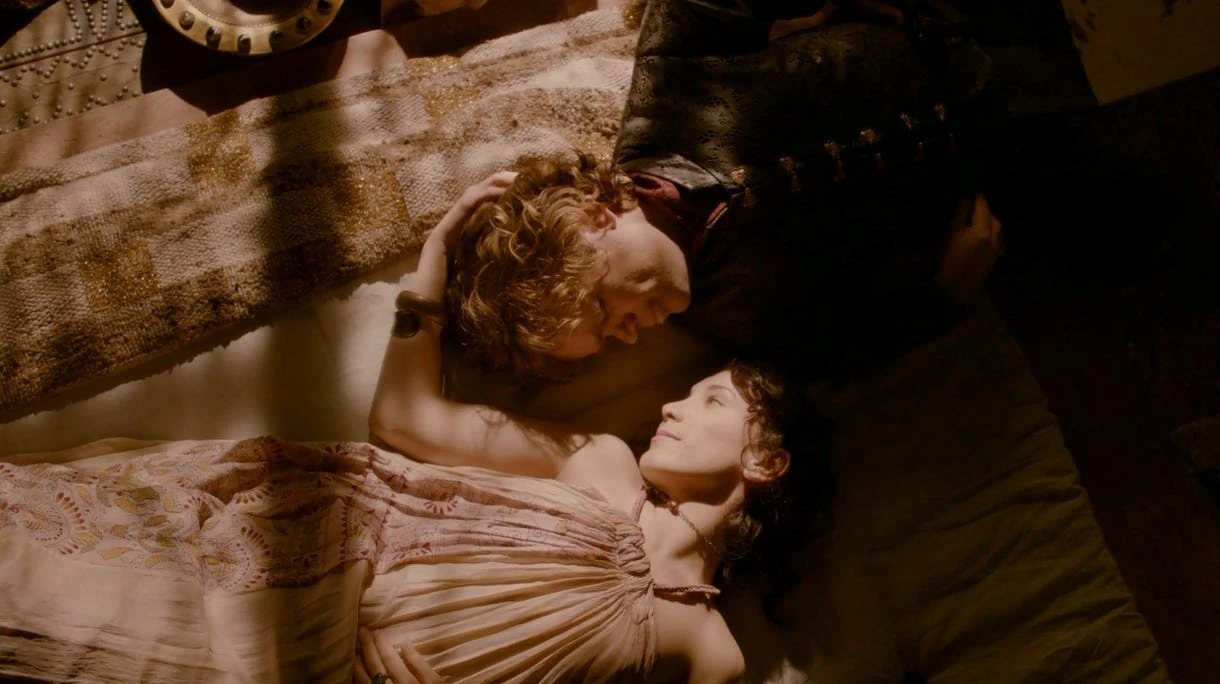The story of Tyrion Lannister and Shae in HBO’s “Game of Thrones” presents a poignant exploration of love, betrayal, and tragedy, markedly deepening the emotional impact compared to George R.R. Martin’s original series, “A Song of Ice and Fire.” While both narratives ultimately lead Shae to a tragic end at the hands of Tyrion, the journey there is vastly different, layered with complex emotions and motivations that diverge significantly from the books.

Tyrion and Shae: A Tale of Love Misunderstood
In Martin’s epic saga, Shae is portrayed primarily as a materialistic character, using her relationship with Tyrion as a ladder to climb the social hierarchy. Her motives are clear: she is drawn to the wealth and status that being Tyrion Lannister’s mistress brings. Tyrion, mistaking her ambition for affection, hopes for a genuine connection, leading to inevitable heartbreak. This dynamic sets a clear stage for Shae’s eventual betrayal at Tyrion’s trial, a move motivated by survival rather than malice.
Contrastingly, HBO’s portrayal of Shae injects a genuine emotional depth into her character. Here, Shae is not just a gold-digger but a woman with real feelings for Tyrion, complicated by his political and family obligations. This Shae shows loyalty and affection, not only towards Tyrion but also towards Sansa Stark, further highlighting her capacity for genuine emotional connections. Her betrayal, therefore, becomes a tragic response to Tyrion’s harsh dismissal of her, aimed to push her to safety, rather than a calculated move for social ascent.

The Devastating Climax: A Comparative Tragedy
The culmination of Shae’s storyline is a moment of profound tragedy in both mediums. In the novels, her presence in Tywin Lannister’s bed seems to be a strategic move, aligning with her character’s survival instincts and ambition. However, her final confrontation with Tyrion is marked by a plea for understanding, which he rebuffs with lethal force.
In “Game of Thrones,” this scene takes on an even darker tone. Shae’s attempt to kill Tyrion, driven by feelings of betrayal and abandonment, shifts the narrative to one of self-defense. Tyrion’s act of murder becomes a heart-wrenching decision, a stark contrast to the cold wrath seen in the books. This not only deepens Tyrion’s character complexity but also adds a layer of somber irony to his storyline—his genuine love for Shae, and his ultimate act of killing her in what he perceives as self-defense, adds a poignant layer to his already tragic relationships.

HBO’s Liberties: Enhancing Narrative Depth
HBO’s adaptation has taken liberties with Martin’s material, often altering characters and plots to fit the television format and budget constraints. While some purists may argue these changes dilute the original’s intent, in the case of Shae and Tyrion, they serve to enhance the emotional gravity of their story. The show’s ability to portray Shae as a more sympathetic character makes her fate all the more heartrending, emphasizing the tragic irony of Tyrion’s misjudgments and misplaced affections.
In conclusion, HBO’s “Game of Thrones” transforms the narrative of Shae and Tyrion from a simple tale of betrayal and ambition into a deeply tragic love story. This adaptation not only underscores the themes of love and betrayal but also enriches the viewer’s experience by presenting a more complex and emotionally engaging storyline. As viewers, we are left to ponder the harsh realities of love and power in a world where even genuine affection can lead to devastating outcomes.

